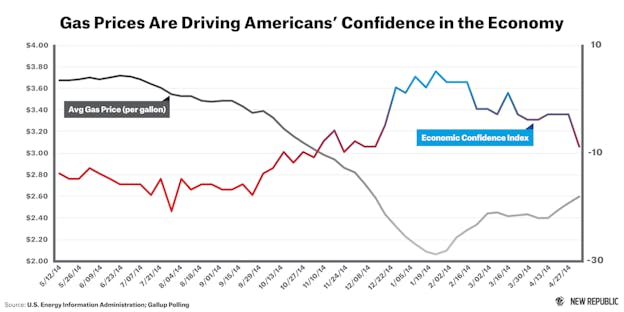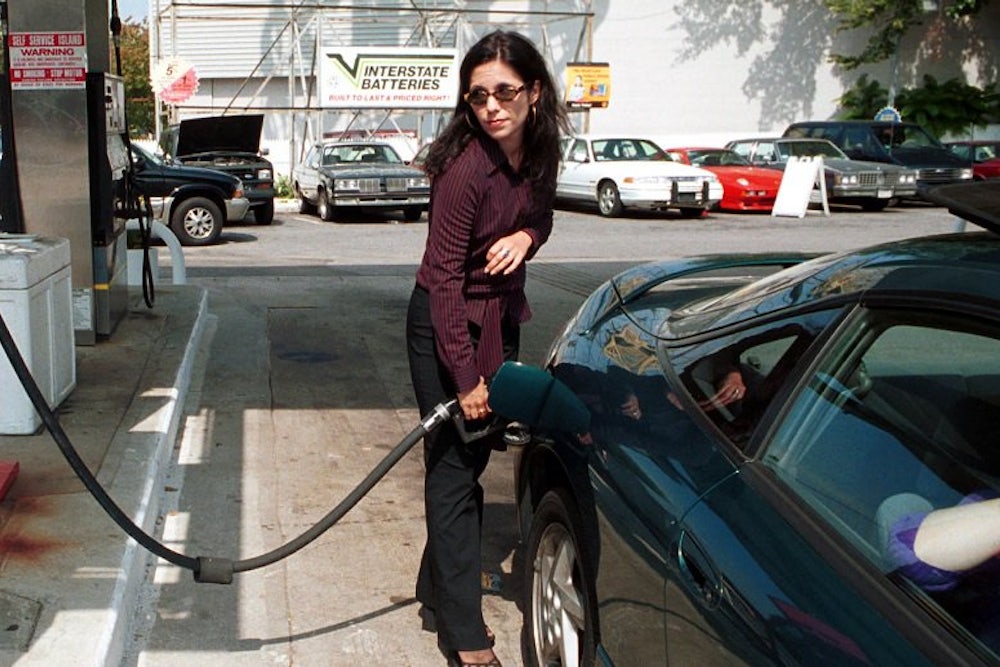On Tuesday, Gallup reported that American confidence in the economy had plunged from -3 to -9 last week. It’s the lowest value since December. After the federal government reported that the economy grew at just 0.2 percent in the first quarter, declining confidence represents a worrying sign that the economic recovery hasn’t surged as many analysts predicted.
Or, maybe the explanation is much simpler than that. Compared over the past year, Gallup’s confidence survey moves in almost the exact opposite direction as gas prices, as measured by the Energy Information Administration. As prices fell in the latter half of 2014, confidence slowly rose. This trend was especially clear in December, when the average price fell by almost 20 percent. During that same period, U.S. confidence grew from -8 to 1. (Gallup surveys thousands of people each week on their belief in the economy and then converts the responses to a number with -100 meaning negative views of the economy and +100 meaning universally positive ones. )1
When gas prices plateaued in late January and began increasing again in February, consumer confidence began to drop. In the past two months, prices moved in a similar pattern—plateauing and then increasing—and consumer confidence followed suit:

Last week’s six-point drop in confidence is a bit larger than expected. Gallup suggests that the weak GDP number and the fall in the stock market last week may have also reduced American confidence. But it’s clear that gas prices are a driving force in American views of the economy.
This has political implications as well. When American confidence in the economy increases, so too does their approval of the president. As The New Republic’s Brian Beutler noted in January, if gas prices had fallen earlier last year, Obama’s approval ratings would likely have been much higher in November—and Democratic losses would like have been far less.
Gallup's full methodology: "Gallup's Economic Confidence Index is the average of two components: Americans' ratings of current economic conditions and their views of whether the economy is improving or getting worse. The theoretical maximum of the index is +100, if all Americans say the economy is 'excellent' or 'good' and 'getting better.' The theoretical minimum is -100, if all Americans say the economy is 'poor' and 'getting worse.'"
A previous version of this article misstated Gallup's methodology for surveying economic confidence.
